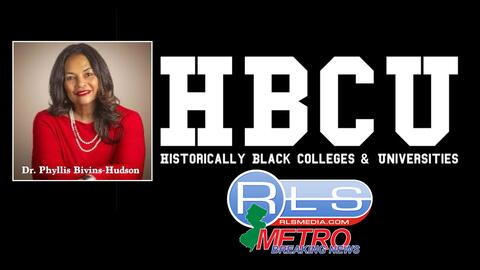By: Dr. Phyllis Bivins-Hudson
HBCUs vs PWIs (Historically Black Colleges & Universities vs Predominantly White Institutions)
Black History Month is generally reserved for recognizing the importance of the many contributions of African American people whose history and artifacts to the world have been ignored by mainstream society.
However, this month, rather than focusing solely on these people and their contributions, I am taking this time to focus on the educational institutions that have helped to give intellectual, moral, and social instruction to much of the Black population.
A great deal of the educational experiences for us were gained through Historically Black Institutions or Universities (HBCUs).
In fact, as of 2022, “roughly 343,700 students were enrolled in HBCUs across the United States. Black learners accounted for 70% of all HBCU students in 2022.” (BestColleges.com
https://www.bestcolleges.com › research › hbcu-facts). Some of these universities and colleges are private while some are public. Let’s explore 5 questions concerning HBCUs vs PWIs:
Let’s explore 5 questions concerning HBCUs vs PWIs:
1. What is an HBCU?
2. Why should anyone attend an HBCU?
3. What are the major differences between HBCUs and PWIs?
4. Who are some notable HBCU graduates?
5. Which HBCU institutions are recognized by the US Department of Education, and which are not Accredited?
What is an HBCU?
An HBCU, according to the Higher Education Act of 1965, is defined as “…any historically black college or university that was established before 1964, whose principal mission was, and is, the education of black Americans, and that is accredited by a nationally recognized accrediting agency or association determined by the Secretary [of Education] to be a reliable authority as to the quality of training offered or is, according to such an agency or association, making reasonable progress toward accreditation.” (Source: National Center for Education Statistics). That’s the official definition.
Why should anyone attend an HBCU?
If you ask a current or past student of an HBCU to define what it means to them to attend an HBCU, you will get a personal response that in part defines the experience or the expected experience from attending an HBCU.
Two such responses include: “I needed to experience like-minded Black people after attending a PWI during my high school experience.” (ZMBG) and, “When I visited [an HBCU], I realized I had never seen that many beautiful Black people, who were doing something positive in one place…”. (TLBR).
Those who have never attended an HBCU may not understand the aforementioned quotes.
However, those who attend or who intend to become HBCU students see HBCUs as a source of great pride for not just the students who attend the universities but also for their families.
While HBCUs are predominantly black, they do not discriminate where race is concerned.
In fact, “The composition of HBCUs has changed over time. In 2022, non-Black students made up 24 percent of enrollment at HBCUs, compared with 15 percent in 1976. Black enrollment at HBCUs fluctuated between 1976 and 2022, with a peak in 2010 (266,000 students). (Click HERE for National Center for Education Statistics).
Having white students attend HBCUs is a testament to the kind of academic experiences available to students who attend these schools.
Students of HBCUs often flourish. They go on to be successful in many facets of society including entrepreneurship and public and private sectors of the work world. Their positions also extend to international work in their fields as well as domestic work.
What are some major differences between HBCUs and PWUs?
I have heard both sides of the coin where this question is concerned.
Some think there are no substantial differences between HBCUs and PWIs, but there are those who think there are significant differences between the two.
I am from the latter school. I have had two daughters and a granddaughter graduate from HBCUs and each of them is successful in her own right. I also have another granddaughter currently enrolled in an HBCU and another in a PWI.
While PWIs offer amenities that are not offered in HBCUs, the same is true of HBCUs, that offer amenities not provided by PWIs.
Students attending HBCUs choose to do so with a different focus. For instance, PWIs are deeply rooted in the history of racism in that when the institutions were built, they were erected for white students only.
Whereas HBCUs have never had a Blacks-only policy. Although PWIs changed some of their policies somewhat in the '60s, they still discriminate.
Hence, one of the main reasons for the institution of HBCUs. On the other hand, there has been an increase in white students enrolling in HBCUs. To illustrate that point, Bluefield State College, as of 2021, has an enrollment of 77% white students in a black school.
Cheyney University, the first HBCU, was established in response to Black students who wanted higher education but were denied enrollment in PWIs.
Soon after Cheyney, other HBCUs were established because of the same exclusionary practices of PWIs. They discriminated not just against Black people but other marginalized groups as well.
However, there is a commonality between the two groups.
They both have the same academic goal in mind, which is to educate. The difference is that HBCUs offer a vital pathway of care, support, and trust for Black students.
The primary focus of PWIs is based on a broad-based mission, which by historical context, was/is to provide higher education to the mainstream without focusing on any particular racial or ethnic group of people.
They have made some changes to be more diverse and inclusive over the years, however, not enough that the playing field has been leveled.
On the other hand, understanding the historical ramifications of PWIs, HBCUs have sought to level the playing field by empowering its Black student population with a competitive academic experience of programs that have been specifically tailored toward their needs. This includes clubs, sororities, fraternities, sports, etc.
Another focus of HBCUs is to deliver quality education to Black students in an environment that includes a staff of many professors and instructors who are Black and represent what leadership and success can look like for them.
HBCUs can also include a sense of community and smaller class sizes in a nurturing environment, which celebrates the heritage, identity, and culturally rich experiences of Black students.
PWIs can offer many of these, but Black students often find themselves in experiences that leave them feeling isolated, discriminated against, and exposed to microaggressions, whether with malintent or not, when they seek membership into these activities or organizations. Who are some notable HBCU graduates?
Who are some notable HBCU graduates?
- Oprah Winfrey | Tennessee State University
- Spike Lee | Morehouse College
- David Banner | Southern University
- Sean Combs | Howard University
- Toni Morrison | Howard University
- Kamala Harris | Howard University
- Wanda Sykes | Hampton University
- Saul Williams | Morehouse College
- Wendy Raquel Robinson | Howard University
- Jacque Reid | Clark Atlanta University
- Yolanda Adams | Southern University
- Randy Jackson | Southern University
- Pam Oliver | Florida A&M University
- Lionel Richie | Tuskegee University
- Robert Flack | Howard University
- Anika Noni Rose | Florida A&M University
- Tom Joyner | Tuskegee University
- Reuben Studdard | Alabama A&M University
- Will Packer | Florida A&M University
- Laz Alonso | Howard University
- Bobby Valentino | Clark Atlanta University
- Debbie Allen | Howard University
- Keshia Knight-Pulliam | Spelman College
- Lance Gross | Howard University
- Terrence J | North Carolina A&T University
- Allice Walker | Spelman College
- K. Michelle | Florida A&M University
- Phylicia Rashad | Howard University
- Samuel L. Jackson | Morehouse College
- Taraji P. Henson | Howard University
- Chadwick Boseman | Howard University
Which HBCU institutions are recognized by the US Department of Education and which are not Accredited?
Alabama A&M University
Alabama State University
Albany State University
Alcorn State University
Allen University
American Baptist College
Arkansas at Pine Bluff, University of
Arkansas Baptist College
Barber-Scotia College**
Benedict College
Bennett College
Bethune-Cookman University
Bishop State Community College
Bluefield State College
Bowie State University
Carver College *
Central State University
Cheyney University of Pennsylvania
Claflin University
Clark Atlanta University
Clinton College
Coahoma Community College
Coppin State University
Delaware State University
Denmark Technical College
Dillard University
District of Columbia, University of the
Edward Waters University
Elizabeth City State University
Fayetteville State University
Fisk University
Florida A&M University
Florida Memorial University
Fort Valley State University
Gadsden State Community College (Valley Street campus)
Grambling State University
Hampton University
Harris-Stowe State University
Hinds Community College at Utica
Hood Theological *
Howard University
Huston-Tillotson University
Interdenominational Theological Center
J. F. Drake State Technical College
Jackson State University
Jarvis Christian University
Johnson C. Smith University
Johnson C Smith Theological Seminary *
Kentucky State University
Knoxville College **
Lane College
Langston University
Lawson State Community College
LeMoyne-Owen College
The Lincoln University
Lincoln University
Livingstone College
Maryland Eastern Shore, University of
Meharry Medical College
Miles College
Miles School of Law *
Mississippi Valley State University
Morehouse College
Morehouse School of Medicine
Morgan State University
Morris Brown College
Morris College
Norfolk State University
North Carolina A&T State University
North Carolina Central University
Oakwood University
Paine College
Paul Quinn College
Payne Theological *
Philander Smith College
Prairie View A&M University
Rust College
Savannah State University
Selma University
Shaw University
Shelton State Community College- C A Fredd Campus
Shorter College
Simmons College of Kentucky
South Carolina State University
Southern University at New Orleans
Southern University at Shreveport
Southern University and A&M College
Southwestern Christian College
Spelman College
St. Augustine's University
St. Philip's College
Stillman College
Talladega College
Tennessee State University
Texas College
Texas Southern University
Tougaloo College
H. Councill Trenholm State Community College
Tuskegee University
Virgin Islands, University of the
Virginia State University
Virginia Union University
Virginia University of Lynchburg
Voorhees University
West Virginia State University
Wilberforce University
Wiley University
Winston-Salem State University
Xavier University of Louisiana
Not recognized by the US Department of Education as an HBCU*
Not currently accredited **
Finally, when you think about Black History Month in 2024, consider taking a stroll down this list of Historically Black Colleges and Universities to acquaint yourself with them.
Research some of them to learn about their rich history and how they have served our people. Then consider sharing your findings with friends and families who might be looking for the right HBCU for their aspiring college or university student.
Here are three fun facts I hope you will enjoy.
FUN FACTS
- Which state has the most HBCUs?
- Alabama holds the nation's largest number of HBCUs, with 14 public and private institutions
- What HBCU carries the distinction of being ranked the top HBCU for its 17th consecutive year?
- Spelman College
- What were the first 3 HBCUs (established before the American Civil War)?
- Cheyney University of Pennsylvania in 1837
- University of the District of Columbia (then known as Miner School for Colored Girls) in 1851
- Lincoln University in 1854
Until next time, keep flying on your own wings. SOURCES
SOURCES
https://hbcubuzz.com/2018/06/41-noteworthy-hbcu-alumni-in-entertainment/
